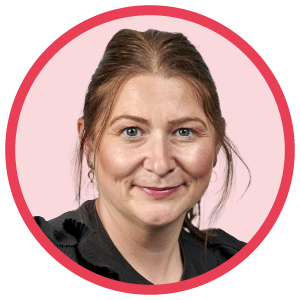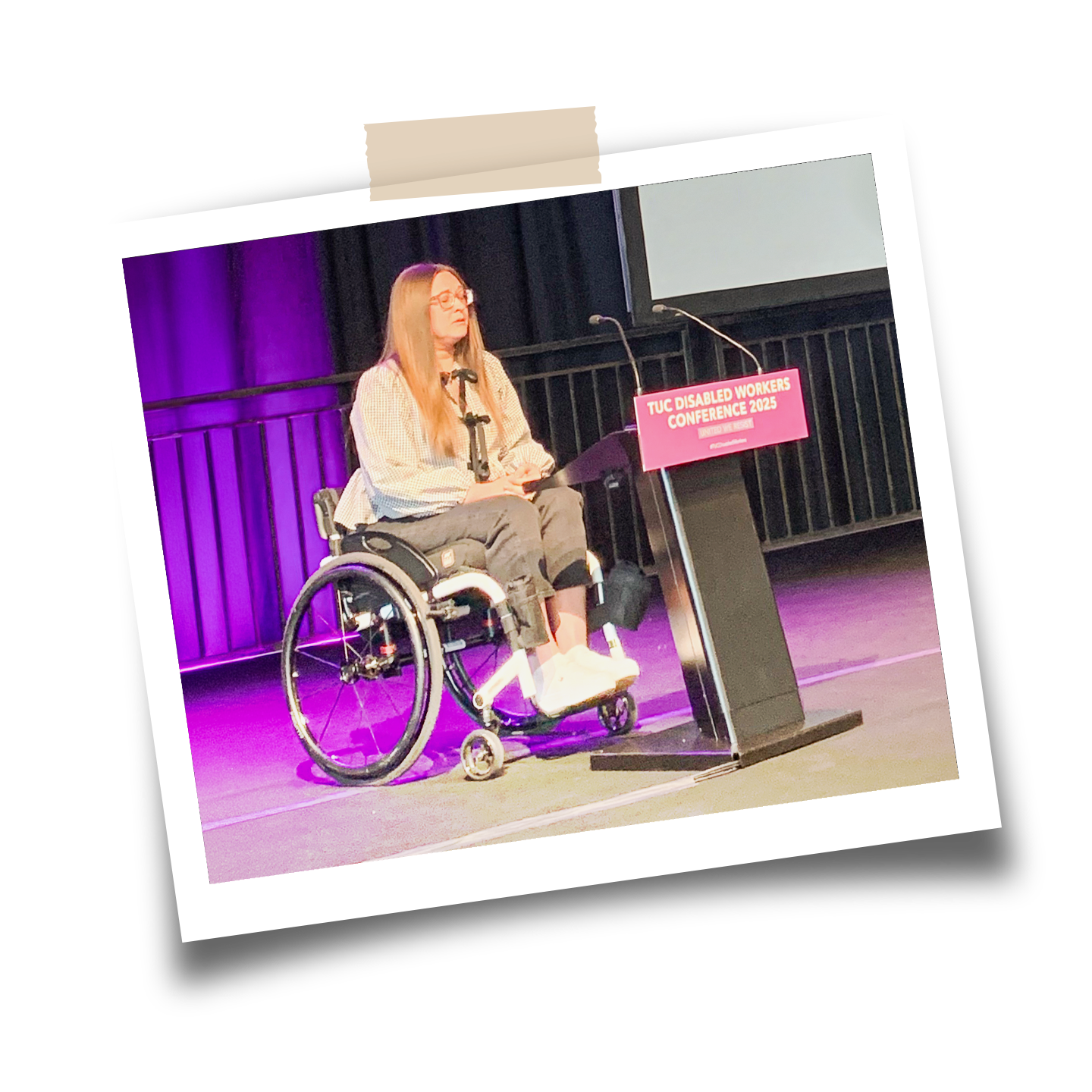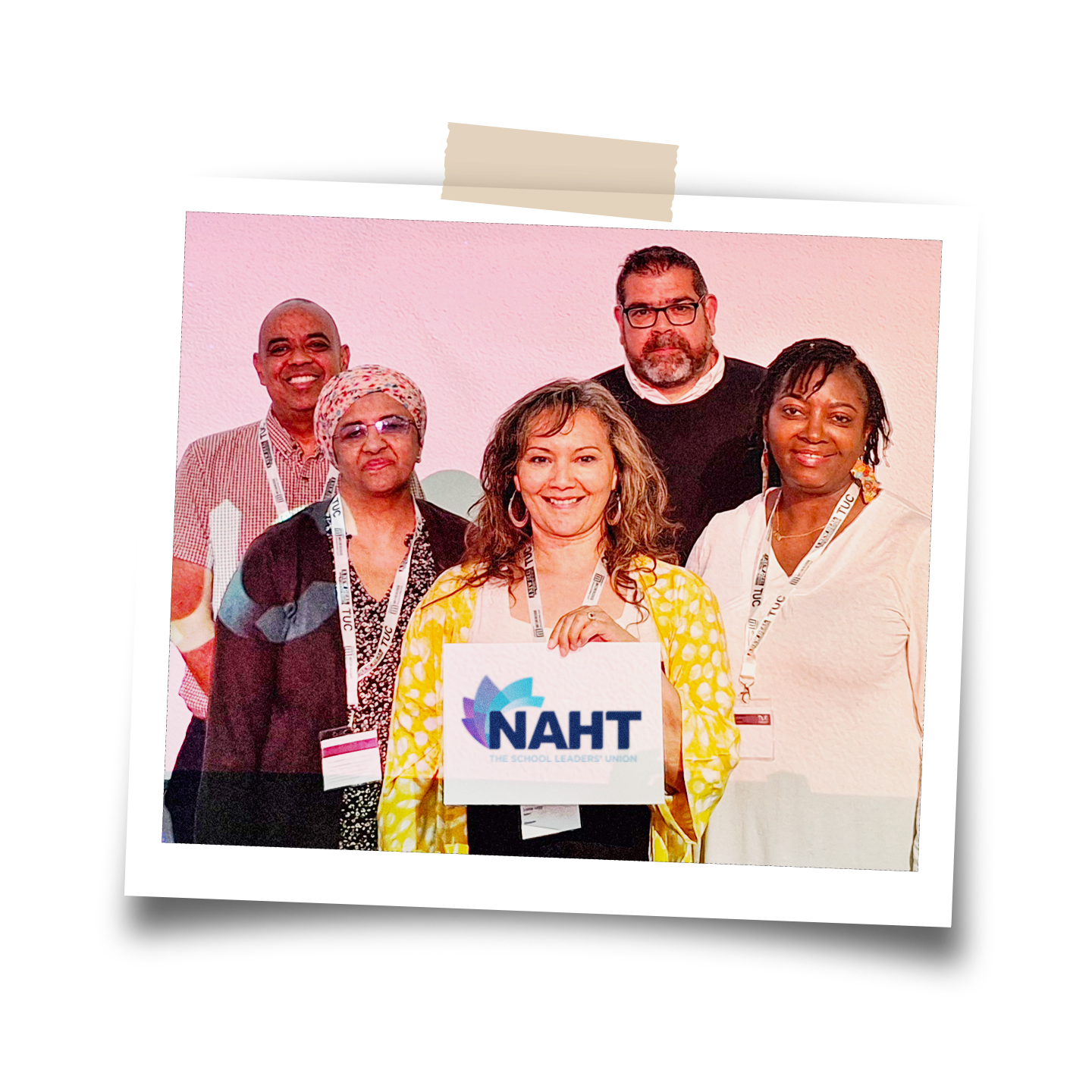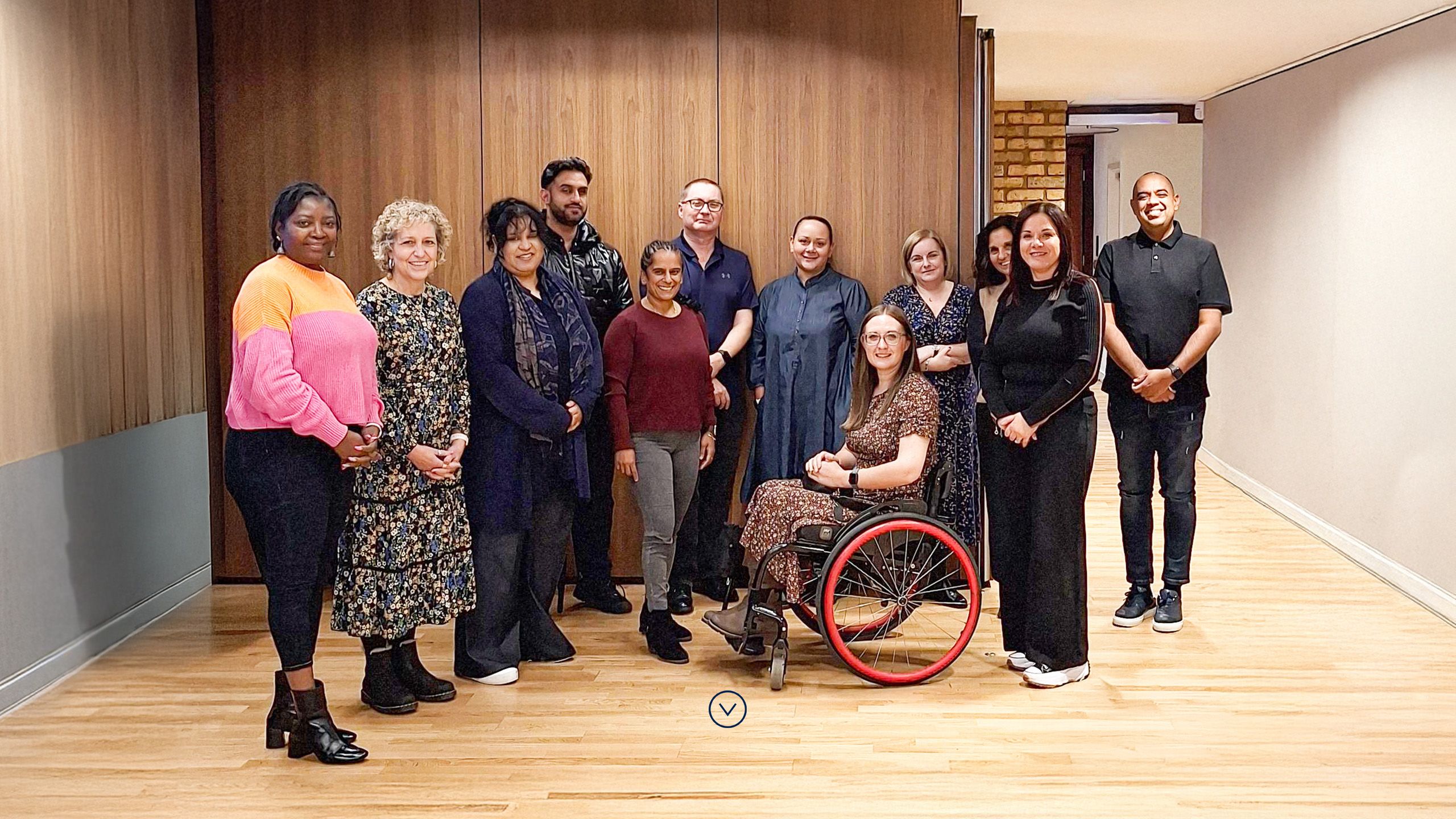
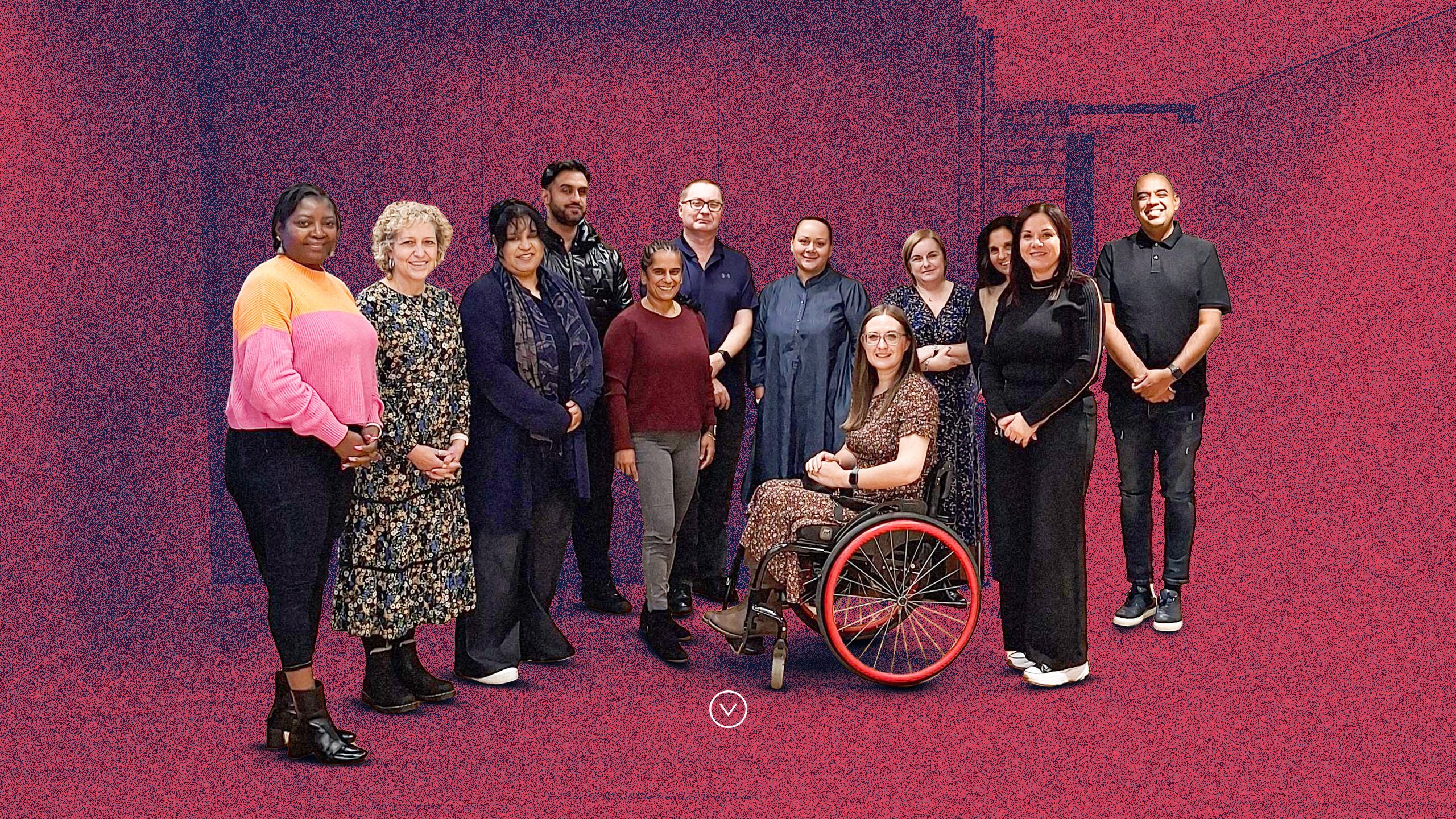
Celebrating
our equality reps
Journalist Nic Paton highlights how NAHT’s dedicated grassroots reps are championing equality, diversity and inclusion to create a stronger, more inclusive union for all members.

Celebrating
our equality reps
Journalist Nic Paton highlights how NAHT’s dedicated grassroots reps are championing equality, diversity and inclusion to create a stronger, more inclusive union for all members.

Bringing inclusion to the heart of union policy
This time last year (summer 2024), Leadership Focus celebrated the work of NAHT’s three member-led equalities networks: the Leaders for Race Equality Network, the Disabled Members’ Network and the LGBT+ Network. A fourth network, the NAHT Women’s Network, was then launched in the autumn.
PAUL WHITEMAN,
NAHT GENERAL SECRETARY
NAHT general secretary Paul Whiteman also outlined that the next step in NAHT’s equalities ‘journey’ would be recruiting a network of grassroots equalities reps. Or, as he put it: “What we want to be doing as a union is making sure our policy objectives consider equality at both a national and local level. The reps will be a reminder to us that those conversations are taking place and need to take place.”
Scroll forward a year and, while it is still early days, the good news is that 16 reps have now been appointed across England, Northern Ireland and Wales. Since taking up their posts in September last year, they are making their presence felt at branch, regional and national levels across the union.
As Paul now explains: “The networks have shown people what equality is all about, showing how important this is to NAHT as a union. They have been very successful at making sure we bring people who haven’t really been taking part in their union much more into the fold.
“The equality reps are about taking this to the next level. It is us saying that we now need more thinking and pace around equalities, about mainstreaming equalities into everything we do.
“So, if we’re having a debate about, say, inspection or standard assessment tests, how do we make sure whatever the policy outcomes are, that they are also informed by those who happen to have a protected characteristic and their viewpoint? It is about weaving equalities into everything we do,” he adds.
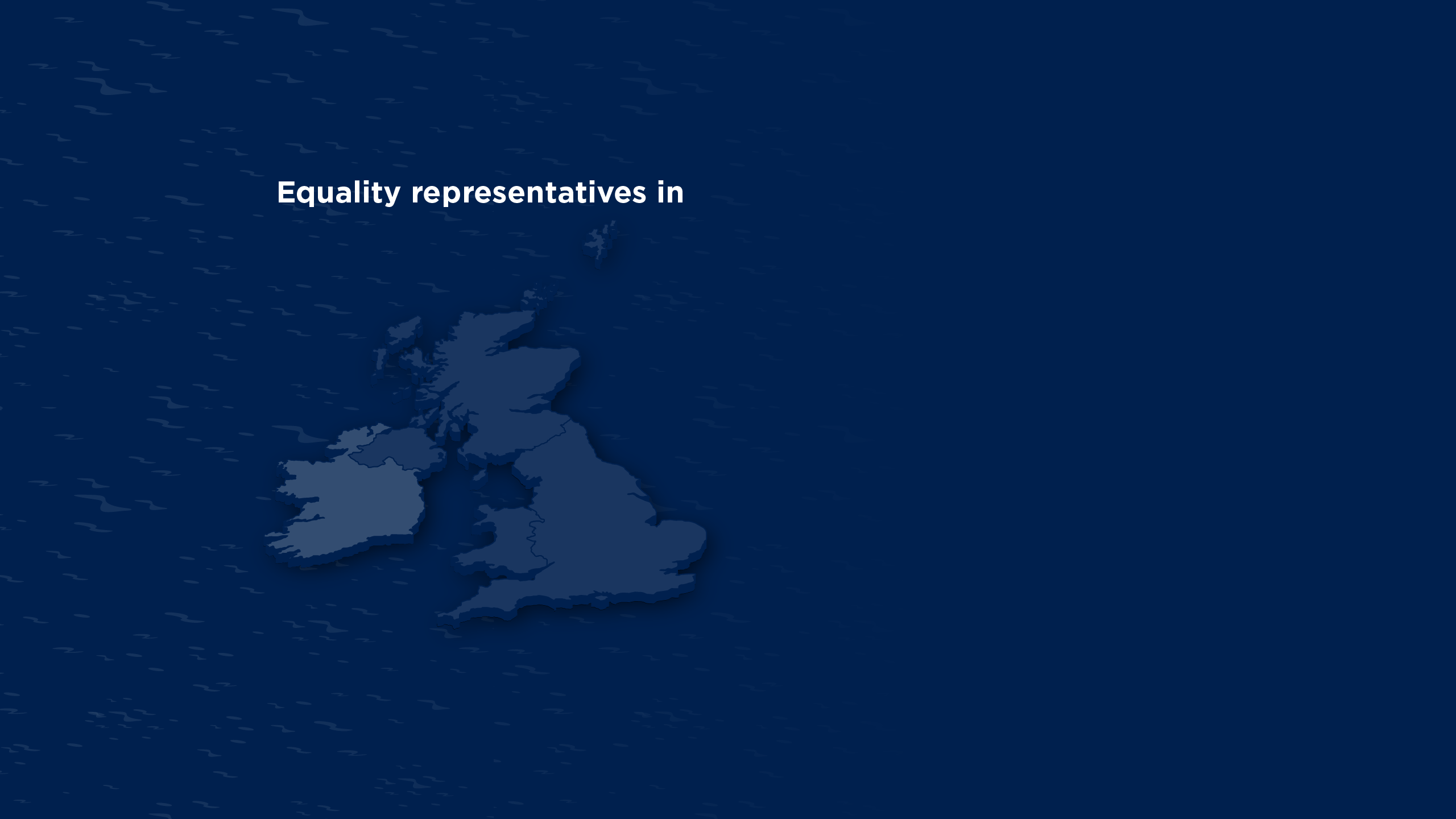
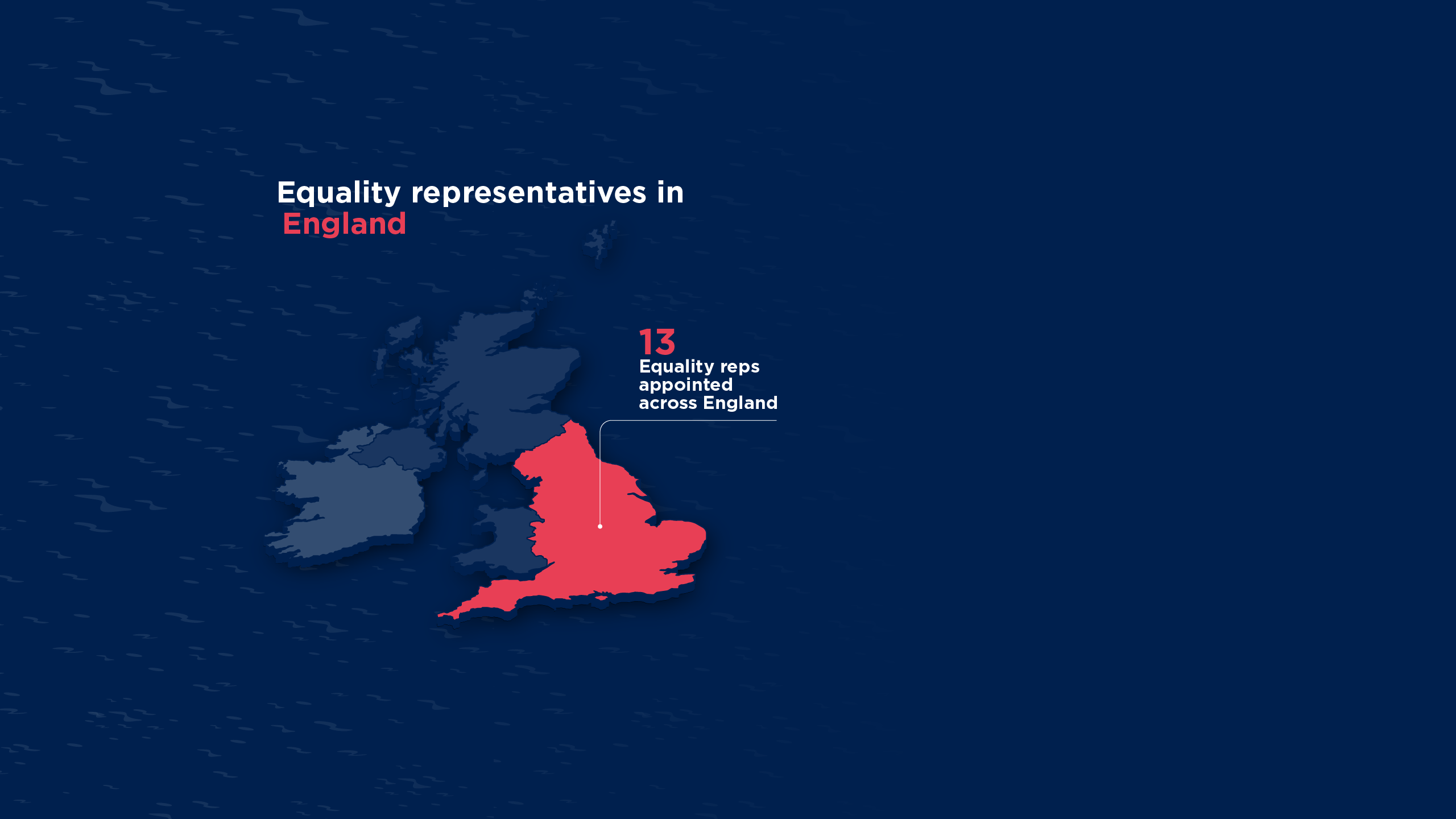
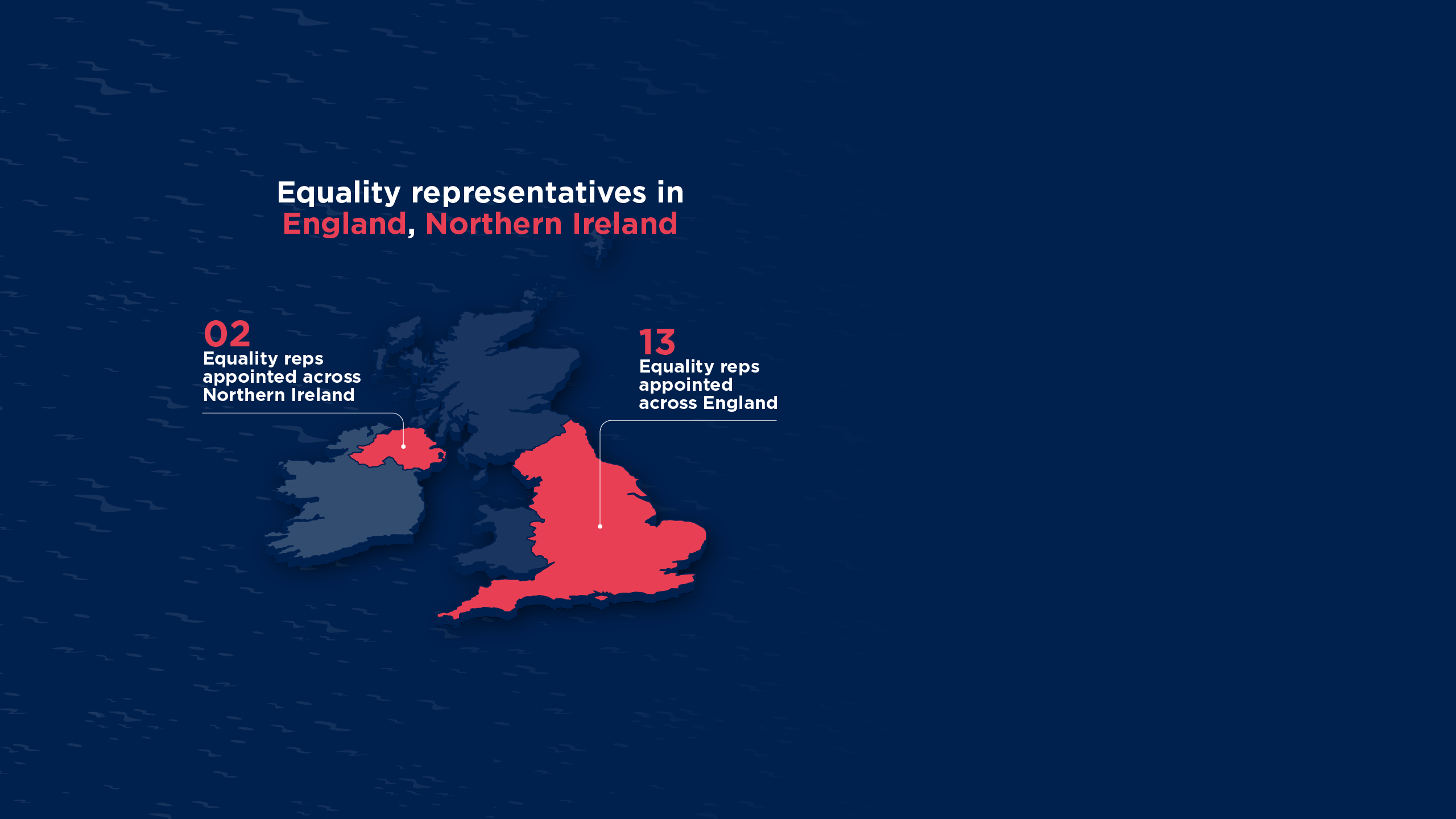
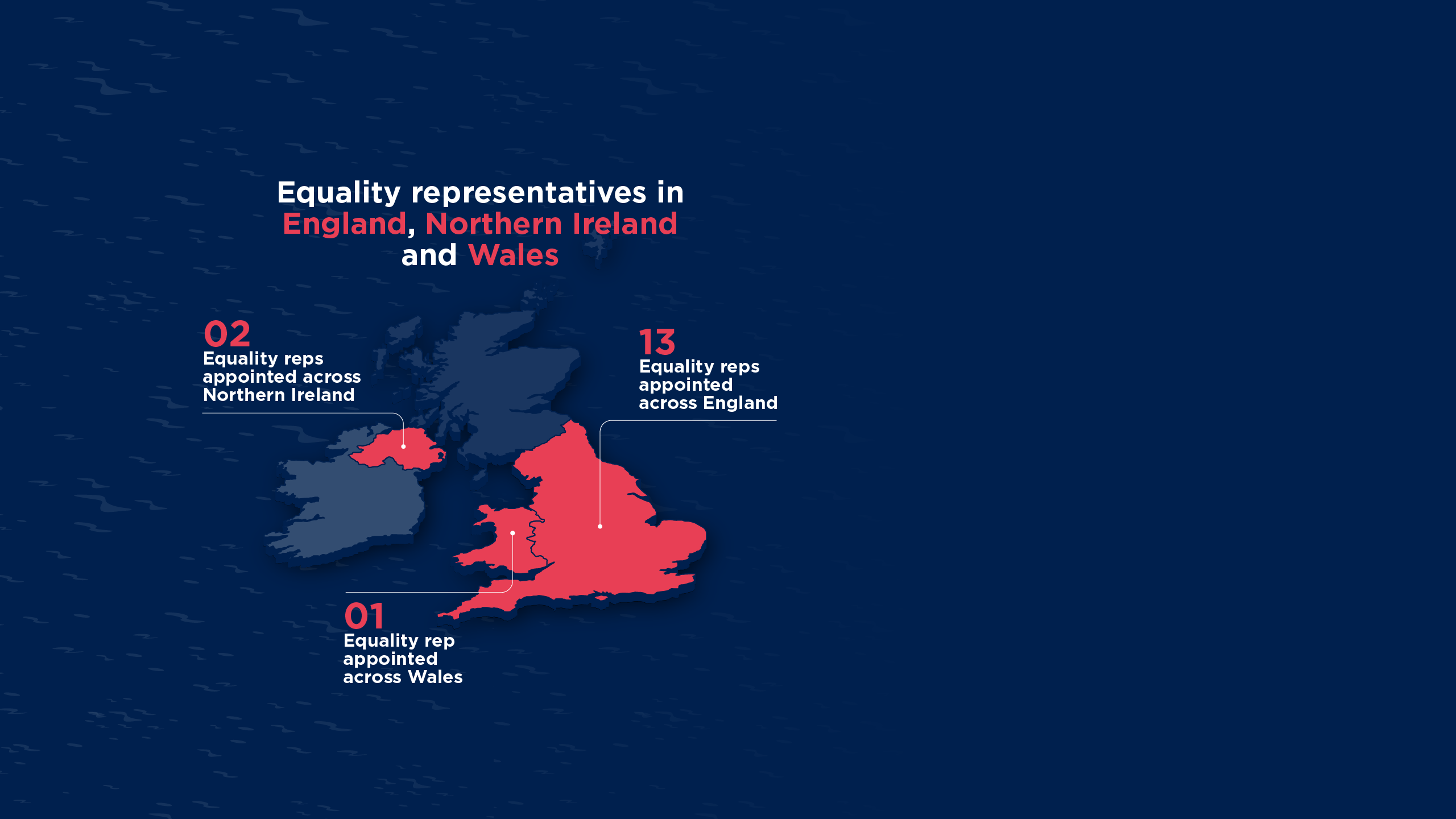
Bringing inclusion to the heart of union policy
This time last year (summer 2024), Leadership Focus celebrated the work of NAHT’s three member-led equalities networks: the Leaders for Race Equality Network, the Disabled Members’ Network and the LGBT+ Network. A fourth network, the NAHT Women’s Network, was then launched in the autumn.
PAUL WHITEMAN,
NAHT GENERAL SECRETARY
NAHT general secretary Paul Whiteman also outlined that the next step in NAHT’s equalities ‘journey’ would be recruiting a network of grassroots equalities reps. Or, as he put it: “What we want to be doing as a union is making sure our policy objectives consider equality at both a national and local level. The reps will be a reminder to us that those conversations are taking place and need to take place.”
Scroll forward a year and, while it is still early days, the good news is that 16 reps have now been appointed across England, Northern Ireland and Wales. Since taking up their posts in September last year, they are making their presence felt at branch, regional and national levels across the union.
As Paul now explains: “The networks have shown people what equality is all about, showing how important this is to NAHT as a union. They have been very successful at making sure we bring people who haven’t really been taking part in their union much more into the fold.
“The equality reps are about taking this to the next level. It is us saying that we now need more thinking and pace around equalities, about mainstreaming equalities into everything we do.
“So, if we’re having a debate about, say, inspection or standard assessment tests, how do we make sure whatever the policy outcomes are, that they are also informed by those who happen to have a protected characteristic and their viewpoint? It is about weaving equalities into everything we do,” he adds.

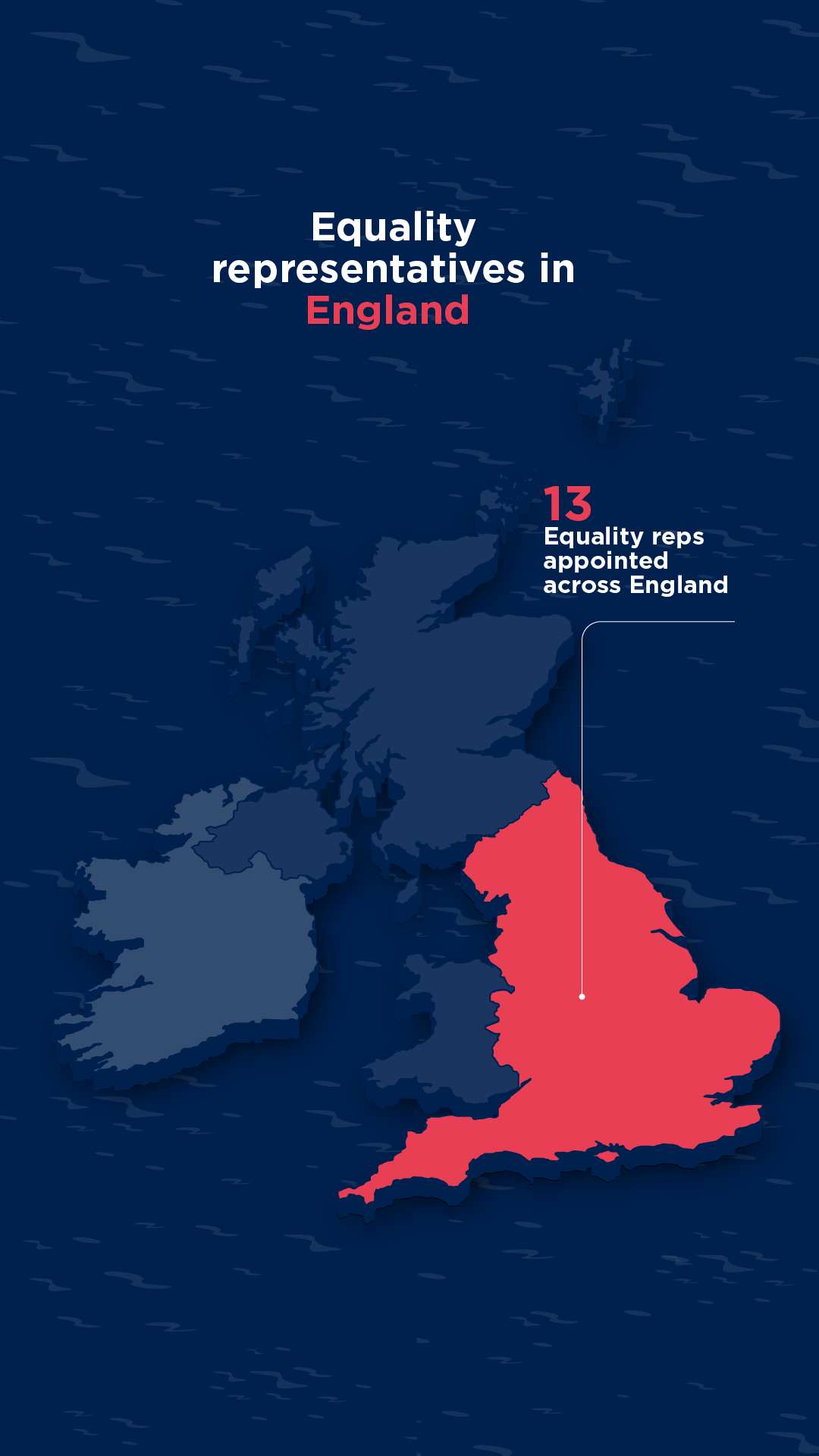
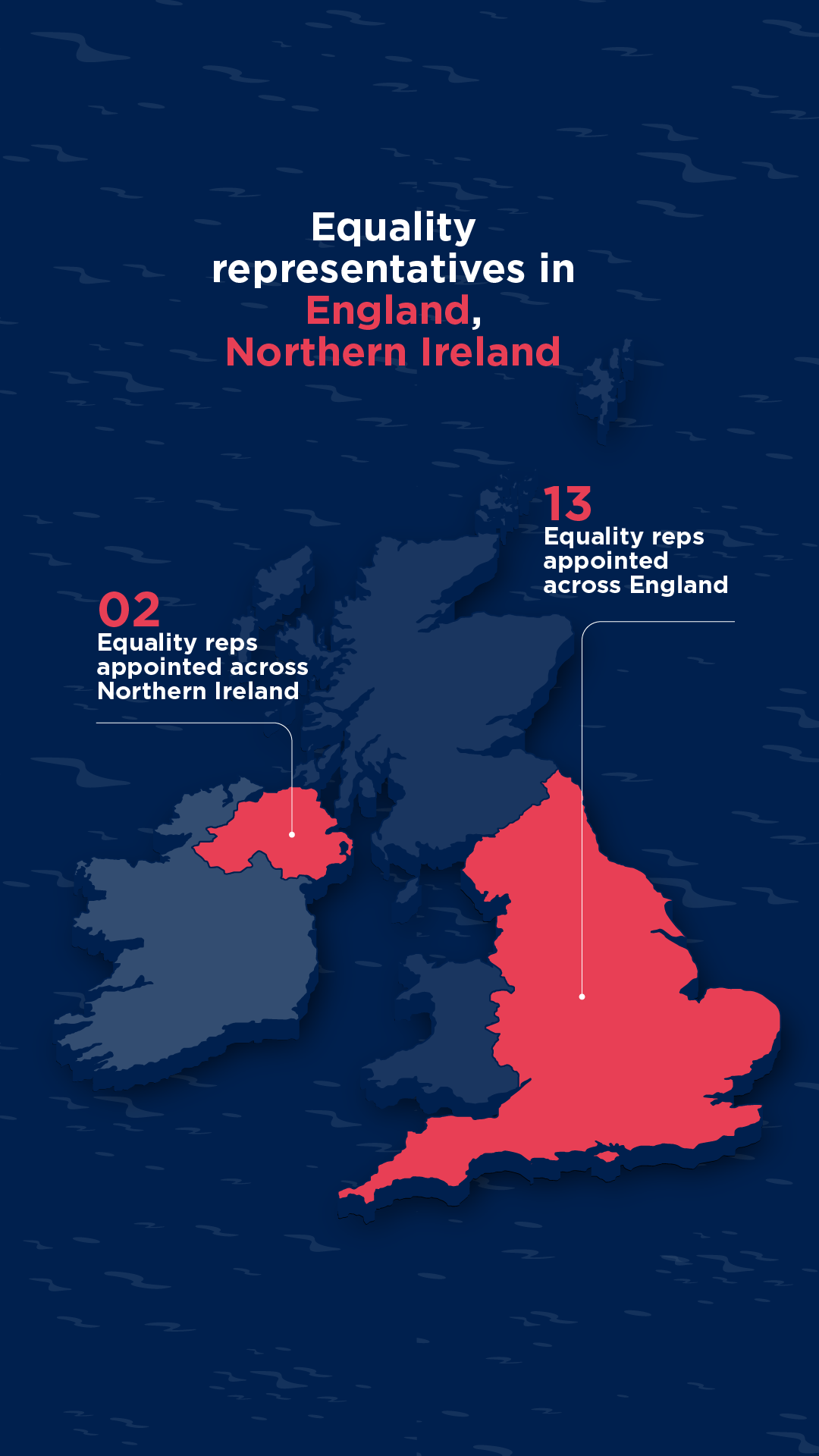
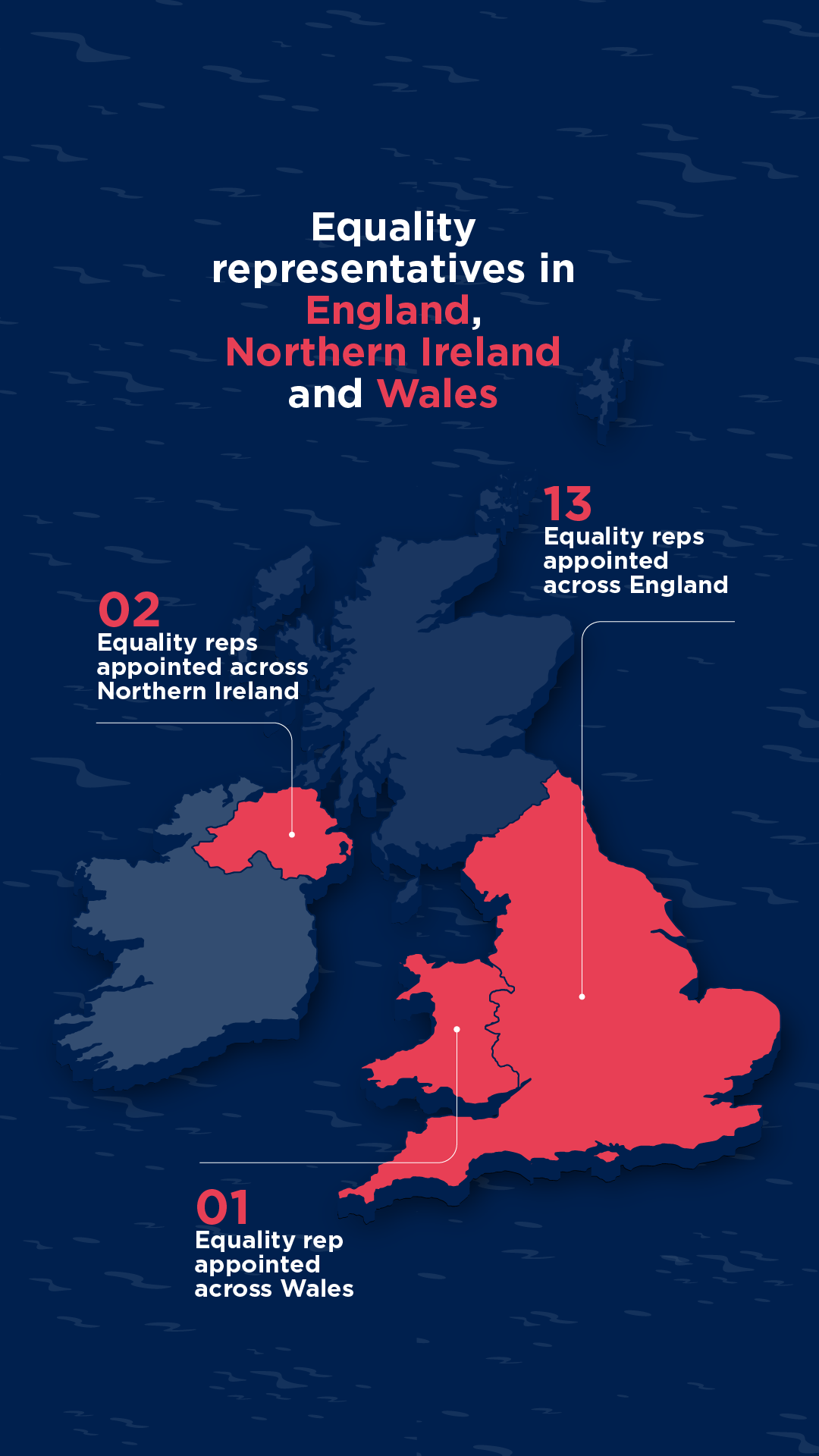
Reps making a difference
KERRI EDGE,
DEPUTY CHIEF EXECUTIVE AT
RIVERMEAD INCLUSIVE TRUST, KENT
Kerri Edge, deputy chief executive of Rivermead Inclusive Trust in Gillingham, Kent, is one of those 16 keen to make a difference. “For me, this first year has been mostly about meeting people, getting to know who’s who, speaking to members, going to meetings and understanding NAHT’s structures and how this all fits together,” she tells Leadership Focus.
Kerri grew up in Belfast during the Troubles and moved to England 20 years ago, but she remains passionate about supporting social mobility and tackling disadvantage in whatever shape or form.
“Growing up in Northern Ireland during a difficult time and in an area with quite high levels of deprivation, I know what it feels like to deal with adversity. I’m 100% committed to giving opportunities to all children, as well as all teachers and school leaders.
“I’m particularly interested in championing those with disadvantage, but as an equality rep, my role will straddle all the protected characteristics,” she says.
NATASHA NICHOLSON,
NAHT REGIONAL HEAD (NORTH EAST)
“The reps are fundamental in supporting us further in the progress we have already made, and they also demonstrate our recognition that we still have some work to do,” emphasises Natasha Nicholson, NAHT regional head (North East), echoing Paul.
“It is about keeping equality on the agenda and in people’s minds. So, if a region is discussing an issue, it is about asking, ‘Is there also an equalities angle we need to address?’” she adds.
MICHAEL DOOLAN,
NAHT SENIOR POLICY AND EQUALITIES OFFICER
“The equality rep role plays a key part in building that awareness and recognition of the equality networks and their great work,” agrees Michael Doolan, NAHT senior policy and equalities officer.
“The reps are a way of bringing equality issues out to all members. So, the message to members is very simple: make use of your reps – contact them, attend your regional meetings, engage with them and get to know them,” he adds.
Looking ahead
Kerri, for one, will be looking to attend as many events as she can, both NAHT and external – for example, the Trades Union Congress’s (TUC’s) equalities events or Pride events. She will also encourage more members to get involved and attend events.
“It is definitely a work in progress, but absolutely, it is a really important area. Equalities shouldn’t just be in the background; equalities should run through everything that NAHT is doing,” she tells Leadership Focus.
“I want everyone within NAHT to feel a sense of belonging. If we don’t want people leaving the profession at a rate of knots, if we want to hang on to good people, they need to feel a sense of belonging.
“People need to feel they have as much of a place as anybody. I think everybody needs to be championed, and this is a really good way of doing it,” Kerri adds.
One practical way members can make a difference right away, Kerri points out, is simply being proactive about listing any protected characteristics they may have on their NAHT membership profile.
“That may sound like a small thing, but it helps us understand people’s needs and potential issues better. So, I’ll be working with branches to raise awareness of this and to improve communication around it,” she says.
The equality reps, Paul agrees, “are a huge and high ambition”. He adds: “We’ll probably never reach a point where we can say ‘job done’ on this. But I want us to get to a place where we feel strong enough and confident enough to ask these questions of ourselves on a regular basis.”
Finally, given that this article started by looking back, where can we hope this ‘journey’ might be in, say, a year?
“A year from now, I’d like us to be in a position where we have a greater understanding of who we are as an organisation in terms of our membership,” says Kerri.
“I’d like us to have equality, diversity and inclusion (EDI) at the forefront of all meetings and agendas so that it is a regular point of discussion. I’d like to see that the members know there is a really strong EDI support system within NAHT and to feel that support. I’d also like to develop case studies or collect feedback highlighting good practices.
“This is a long-term project, and we are only at the start. But I think we’re now definitely in a position to build more momentum,” Kerri adds.


Looking ahead
Kerri, for one, will be looking to attend as many events as she can, both NAHT and external – for example, the Trades Union Congress’s (TUC’s) equalities events or Pride events. She will also encourage more members to get involved and attend events.
“It is definitely a work in progress, but absolutely, it is a really important area. Equalities shouldn’t just be in the background; equalities should run through everything that NAHT is doing,” she tells Leadership Focus.
Rep Annwen speaking on stage at the TUC’s Disabled Workers’ Conference 2025.
Rep Annwen speaking on stage at the TUC’s Disabled Workers’ Conference 2025.
“I want everyone within NAHT to feel a sense of belonging. If we don’t want people leaving the profession at a rate of knots, if we want to hang on to good people, they need to feel a sense of belonging.
“People need to feel they have as much of a place as anybody. I think everybody needs to be championed, and this is a really good way of doing it,” Kerri adds.
One practical way members can make a difference right away, Kerri points out, is simply being proactive about listing any protected characteristics they may have on their NAHT membership profile.
“That may sound like a small thing, but it helps us understand people’s needs and potential issues better. So, I’ll be working with branches to raise awareness of this and to improve communication around it,” she says.
The equality reps, Paul agrees, “are a huge and high ambition”. He adds: “We’ll probably never reach a point where we can say ‘job done’ on this. But I want us to get to a place where we feel strong enough and confident enough to ask these questions of ourselves on a regular basis.”
Wendell Gopaul (back row, left) and Ann Pratt (front row, right) at the TUC’s Black Workers’ Conference, pictured with other NAHT members in attendance.
Wendell Gopaul (back row, left) and Ann Pratt (front row, right) at the TUC’s Black Workers’ Conference, pictured with other NAHT members in attendance.
Finally, given that this article started by looking back, where can we hope this ‘journey’ might be in, say, a year?
“A year from now, I’d like us to be in a position where we have a greater understanding of who we are as an organisation in terms of our membership,” says Kerri.
“I’d like us to have equality, diversity and inclusion (EDI) at the forefront of all meetings and agendas so that it is a regular point of discussion. I’d like to see that the members know there is a really strong EDI support system within NAHT and to feel that support. I’d also like to develop case studies or collect feedback highlighting good practices.
“This is a long-term project, and we are only at the start. But I think we’re now definitely in a position to build more momentum,” Kerri adds.




